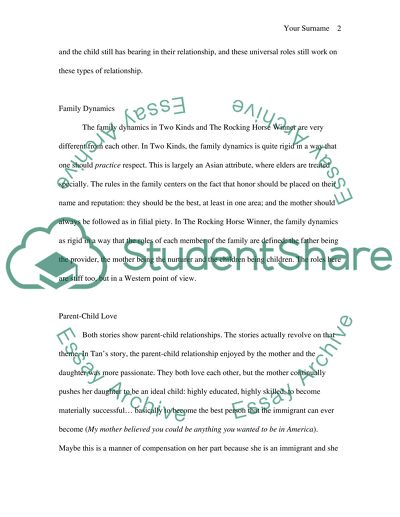Cite this document
(“Two Kinds and The Rocking Horse Winner: An Analysis Admission/Application Essay”, n.d.)
Retrieved de https://studentshare.org/literature/1391113-two-kinds-and-the-rocking-horse-winner-an-analysis
Retrieved de https://studentshare.org/literature/1391113-two-kinds-and-the-rocking-horse-winner-an-analysis
(Two Kinds and The Rocking Horse Winner: An Analysis Admission/Application Essay)
https://studentshare.org/literature/1391113-two-kinds-and-the-rocking-horse-winner-an-analysis.
https://studentshare.org/literature/1391113-two-kinds-and-the-rocking-horse-winner-an-analysis.
“Two Kinds and The Rocking Horse Winner: An Analysis Admission/Application Essay”, n.d. https://studentshare.org/literature/1391113-two-kinds-and-the-rocking-horse-winner-an-analysis.


